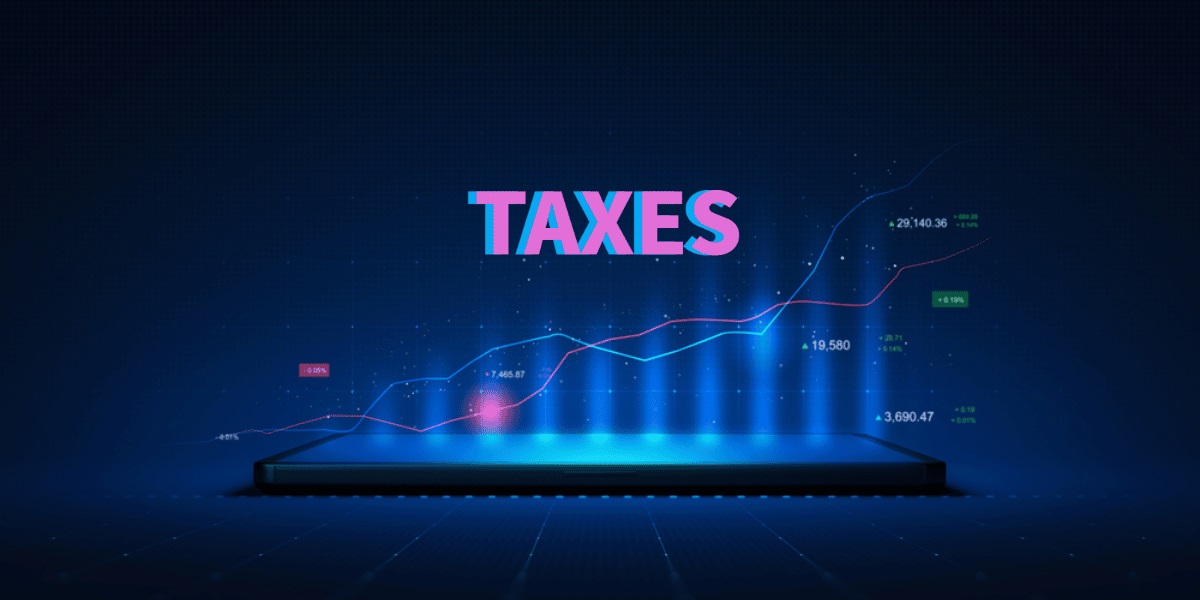Articles
Forex Trading and Taxes: What You Need to Know
When it comes to reporting your forex trading profits and losses, the tax rules can be complicated. The key is to keep good records of all your trades so you can properly report the income or claim the losses.

Forex Trading and Taxes: What You Need to Know.
So you've decided to dip your toes into the
exciting world of forex trading. Kudos to you for wanting to build wealth and
gain financial freedom. But before you start trading currencies and racking up profits,
there's something really important you need to understand: forex trading and
taxes. The tax rules for forex traders can be complicated, but don't worry,
we've got you covered. This article will tell you everything you need to know
about reporting your forex income and deductions so you can avoid any nasty
surprises come tax time. Forex trading may be an exciting endeavor, but the IRS
isn't going to cut you any slack. Follow these tips and you'll be able to focus
on trading, knowing the tax side is handled. Time to learn the secrets to forex
trading tax success.
How Prop Firms Operate and Your Tax
Obligations
As an independent forex trader, you’re
essentially running your own business, so you need to keep good records of your
trading activity and be aware of your tax obligations. Prop firms operate
differently than brokers in how they report your earnings and losses.
With a prop firm, all of your trades are
recorded and reported under their business name. They will issue you a 1099
form at the end of the year stating your total profits and losses. It’s up to
you to keep detailed records proving these amounts in case of an audit. You’ll
report this income on Schedule C of your personal tax return.
On the other hand, if you trade through a
broker, you receive trade confirmations for each transaction with details of
the trade. You must keep all of these confirmations to substantiate the totals
reported on your 1099. Brokers only report your net profits and losses, so if
you have gains and losses, keep records to prove both.
As a forex trader, your profits and losses
are considered business income, not capital gains. This means your tax rate can
be higher. You can deduct normal business expenses like education, home office
costs, and computer equipment to help lower your tax bill.
Staying on top of your record keeping and
understanding forex tax laws will ensure you file an accurate return and avoid
issues with the IRS down the road. The time you put in now can save you time,
money, and headaches later. Keep good records, know your obligations, and
you'll master forex trading taxes in no time!
Reporting Profits and Losses From Forex
Trading
When it comes to reporting your forex trading
profits and losses, the tax rules can be complicated. The key is to keep good
records of all your trades so you can properly report the income or claim the
losses.
The first step is to determine if you qualify
in the eyes of the IRS. Typically, traders buy and sell frequently to generate
income, while investors buy and hold for long-term gain. If you make over 4,000
trades a year, you’ll likely be considered a trader. Either way, you’ll report
profits and losses on Schedule D and Form 8949.
As a trader, your profits and losses are
considered business income. You can deduct business expenses, home office
deductions, and claim mark-to-market accounting. As an investor, profits and
losses are considered capital gains and losses. You can only deduct $3,000 in
net capital losses each year.
When calculating your gains and losses, use the
adjusted cost basis for each trade. This means adding commissions and fees to
your cost basis, and subtracting them from your proceeds. Be sure to convert
all foreign currency into U.S. dollars using the exchange rate on the date of
each trade.
At the end of the year, your broker will send
you a 1099 or similar tax form summarizing your total gains and losses for the
year. Double check this matches your own records before filing your taxes. And
if you have a particularly complex tax situation, don’t hesitate to consult an
accountant to make sure you get the most advantageous tax treatment and avoid
potential audits or penalties.
Following these guidelines and keeping meticulous records of your forex trading activity will help ensure you properly report your income and claim all eligible deductions on your taxes each year.
Deductions You Can Claim Against Forex
Trading Income
As a forex trader, you‘re entitled to claim
certain deductions to lower your taxable income. The IRS allows deductions for
expenses related to your trading business. Here are a few major deductions you
can likely claim:
·
Trading platform and software fees. The costs of your trading platform
subscription and any software you use for analysis and research are deductible.
·
Education and training. Expenses for forex trading courses, seminars,
books, video tutorials, and other educational resources can be deducted. As
long as the materials help you strengthen your trading skills, they qualify.
·
Travel. If you travel for a forex trading conference, seminar, or other
educational event, you can deduct expenses like airfare, hotel, meals, and
transportation. Keep good records of your travel expenses for your tax records.
·
Home office. If you do most of your forex trading from home, you may be
able to claim the home office deduction. You’ll need to determine the square
footage of the space used exclusively for your trading business. You can deduct
a portion of your rent, utilities, and other home office expenses.
·
Depreciation of equipment. The cost of any computer equipment,
monitors, and other technology used primarily for forex trading in your home
office can be depreciated over the equipment's useful life. A portion of the
cost can be deducted each year.
Keeping good records of all your forex trading
income and expenses will make filing your taxes much easier. Be sure to consult
an accountant to determine which deductions you specifically qualify for based
on your trading activities and income. With some savvy expense tracking and the
right deductions claimed, you can lower your forex tax bill each year.
Conclusion
So there you have it, the basics of forex
trading and how it’s taxed. While forex can be complicated, the tax rules
around it don’t have to be. Keep good records, report your gains and losses
accurately, and you’ll be all set. The most important thing is finding a
strategy that works for you and sticking to it. If you do that, you’ll be well
on your way to successful forex trading. Just remember, knowledge is power, so
keep learning and stay up to date with the latest rules and regulations. Forex
can be rewarding, but you have to go in with realistic expectations. Now you‘ve
got the info you need to do just that. Good luck and happy trading!

